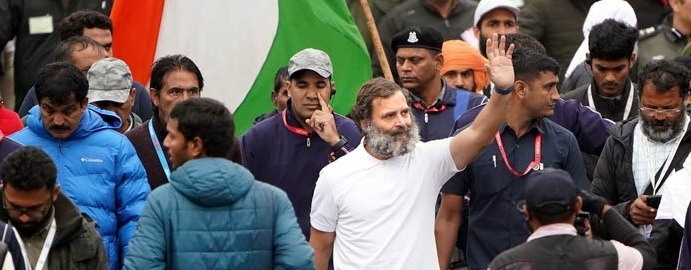The mosque’s wazukhana, where a structure claimed by Hindus to be a shivling is sited, will not be part of the survey

A Varanasi court on Friday, 21 July, directed the Archaeological Survey of India to conduct a “detailed scientific survey”—including excavations, wherever necessary—to determine if the Gyanvapi mosque located next to the Kashi Vishwanath temple is built upon the remains of another temple.
The mosque’s wazukhana, where a structure claimed by Hindu litigants to be a shivling exists, will not be part of the survey—this is in keeping with an earlier Supreme Court order protecting that spot in the complex.
District judge A.K. Vishvesh directed the ASI to submit a report to the court by August 4, along with videos and photographs of survey proceedings.
“The Director of ASI is also directed to conduct a detailed scientific investigation by using GPR (ground penetrating radar) survey, excavation, dating method and other modern techniques of the present structure to find out… whether [the] same has been constructed over a pre-existing structure of [a] Hindu temple,” the order said.
The order specifically directs the use of GPR technology for survey “just below the three domes of the building in question”, and to conduct an excavation there “if required”.
Hindu activists, who claim that a temple existed earlier at the site and was demolished in the 17th century on the orders of Mughal emperor Aurangzeb, hailed the court order with glee. Ayodhya’s Hanumangarhi mahant Raju Das welcomed the Varanasi court order. The Ram Janmabhoomi chief priest Satyendra Das too said the seers are elated with it. A throng of people outside the court received the news with slogans of “Har Har Mahadev” as well.
The court had on July 14 reserved its order after hearing both the Hindu and Muslim sides’ arguments.
The petition filed by the Hindu group, seeking the right to regular worship of sculptures of Hindu deities on the mosque’s outer wall, had sought court directions to the ASI to survey the complex.
Its counsel had said the situation will become clear after examining the three domes of the Gyanvapi complex, the western wall and the entire complex in a modern manner.
The mosque management’s counsel Mohammed Tauhid Khan said it will challenge the Varanasi court’s order.
“It is not acceptable and we will move to a higher court against it. This survey could cause damage to the mosque,” he said.
Apart from the mosque’s domes, the order mentions the need to survey beneath the western wall and beneath the cellars. The ASI should also conduct an exercise on the plinth and pillars to determine the age and nature of the building, the judge said.
The order asked the ASI to ensure that there is no damage to the “structure standing on the disputed land”.
The Varanasi district court had on May 16 agreed to hear a plea for an ASI survey, following an Allahabad High Court order.
Earlier, the Supreme Court had ordered the protection of the area around the supposed shivling, found when another court ordered a video survey of the complex.
The mosque management maintained that the structure is part of the water fountain mechanism at the wazukhana, the reservoir where devotees perform ablutions before offering namaz.
At one stage, lawyers representing the mosque argued that the Kashi Vishwanath–Gyanvapi mosque case was not maintainable, claiming that it violated the Place of Worship (Special Provisions) Act, 1991.
That law rules out changing the character of any place of worship from what it was on 15 August 1947. Courts ruling per the Act, however, made an exemption for the Ram Janmabhoomi–Babri Masjid legal dispute.
Source: NH







































